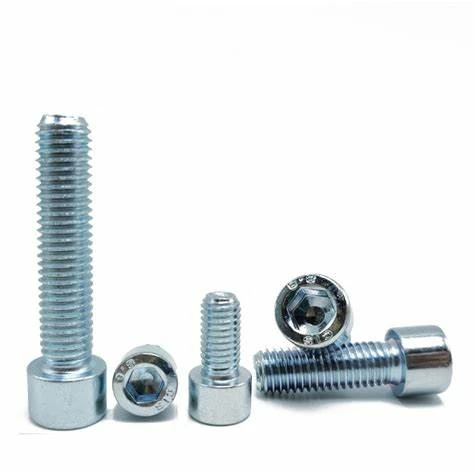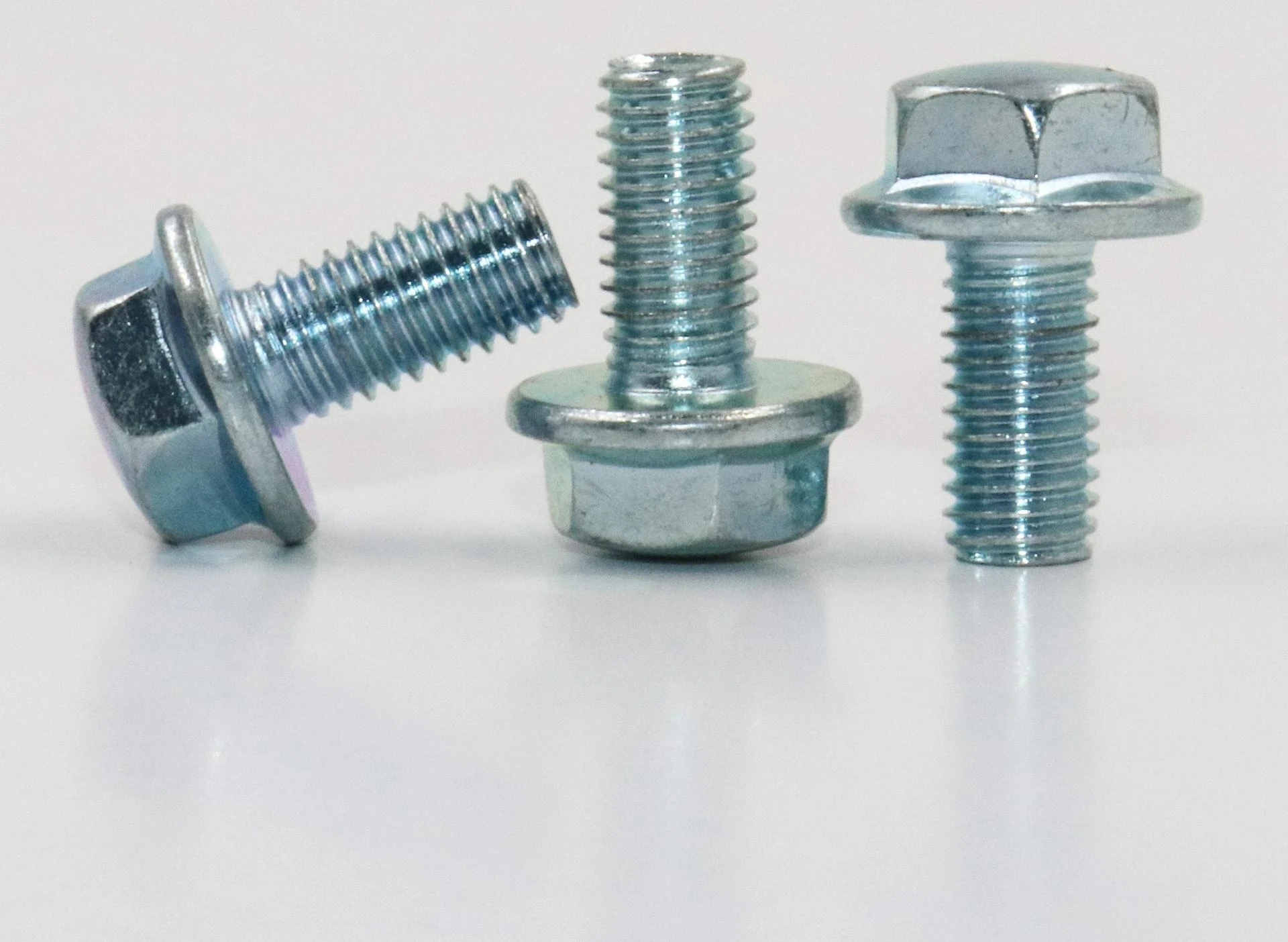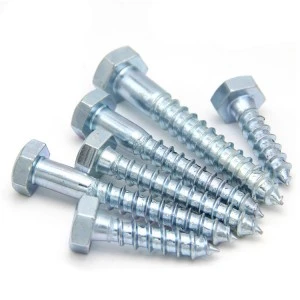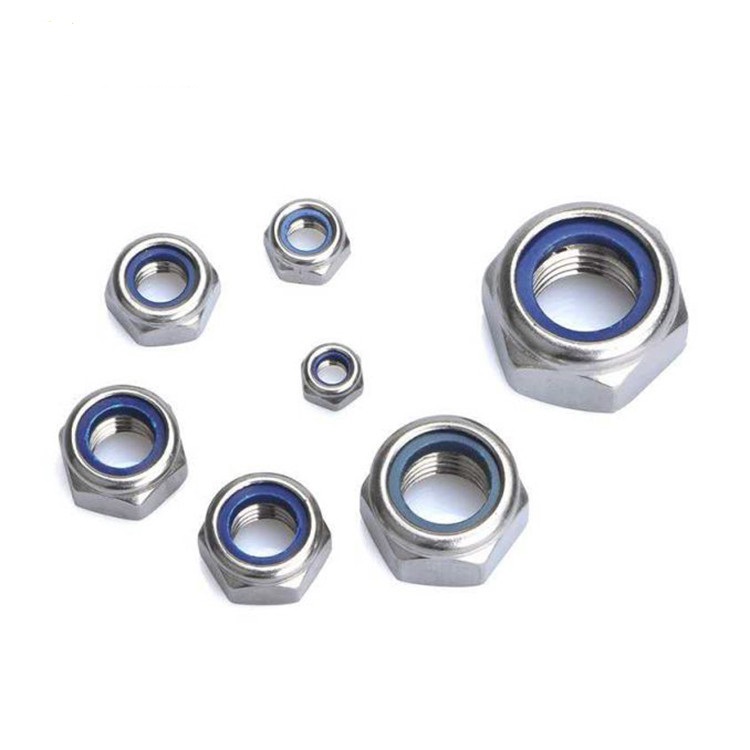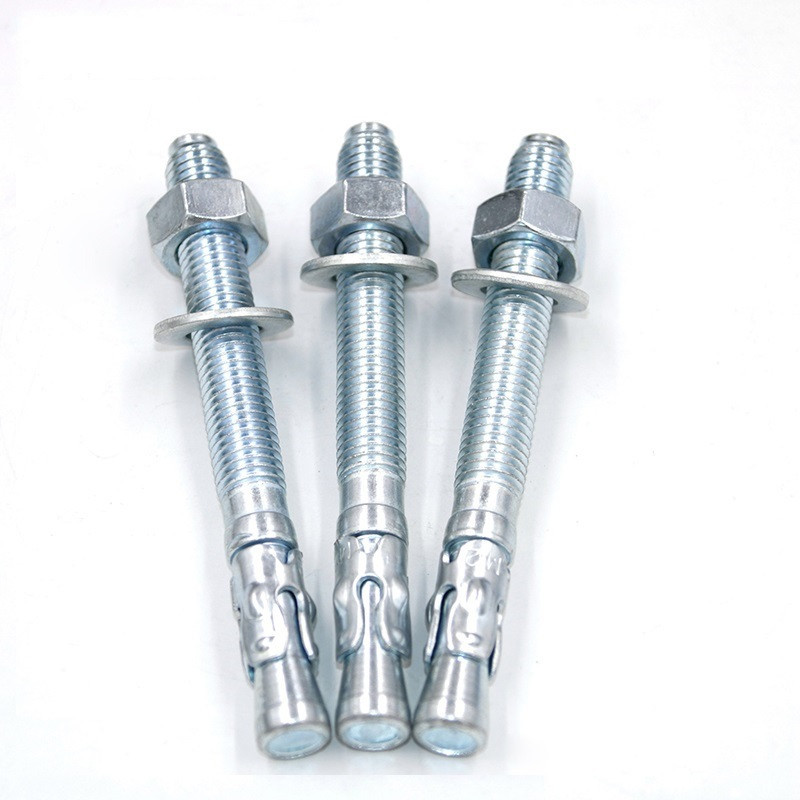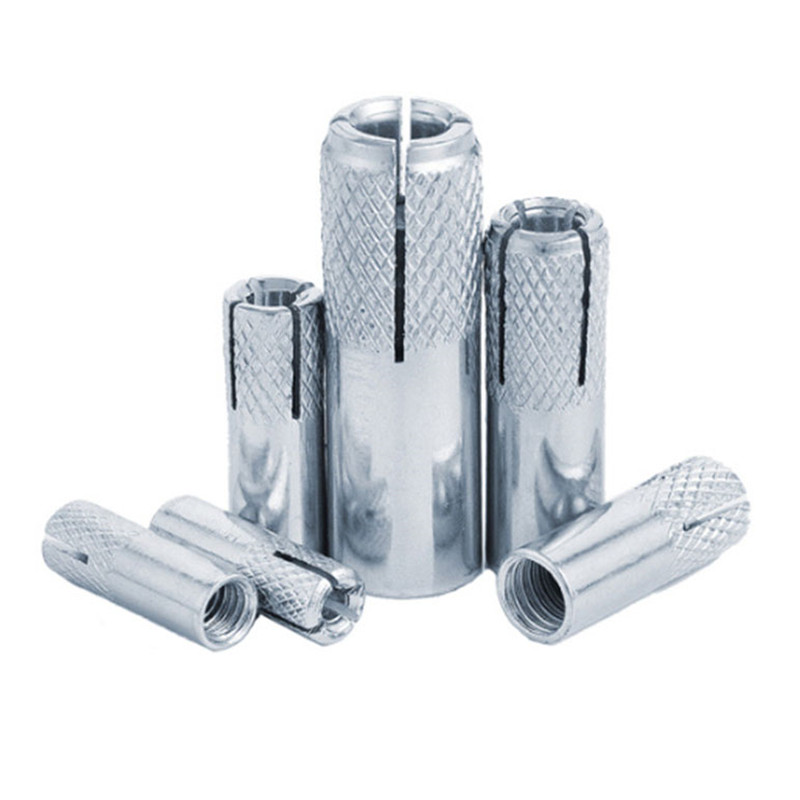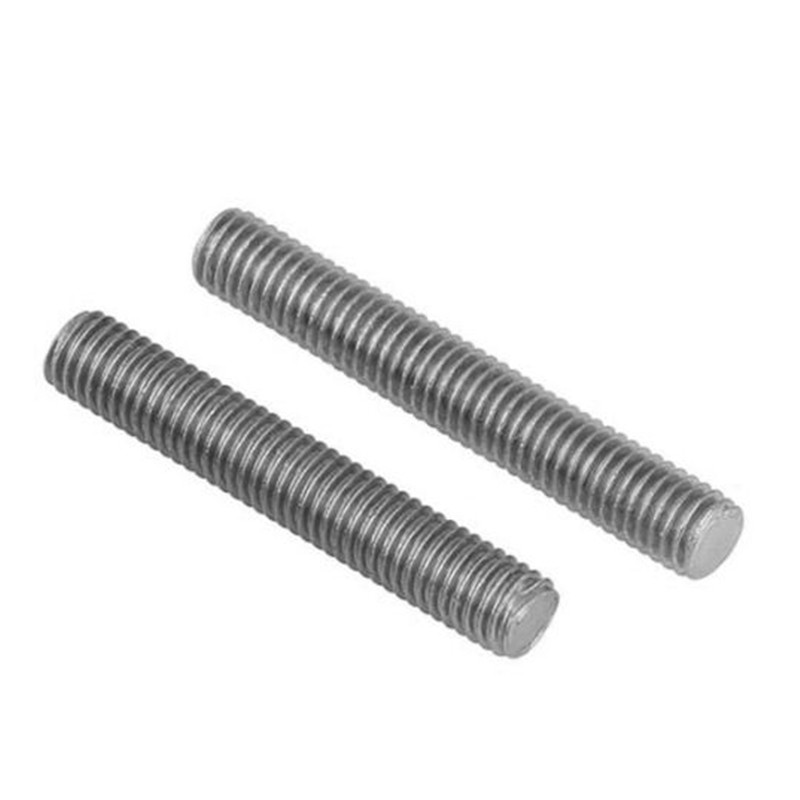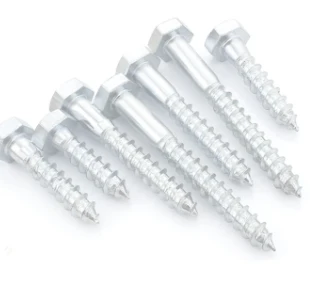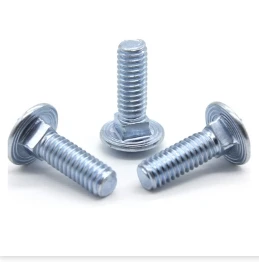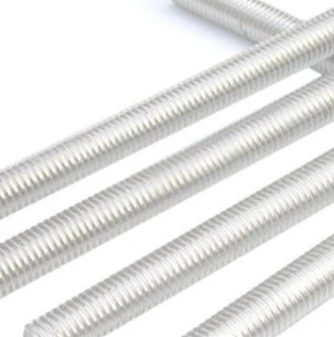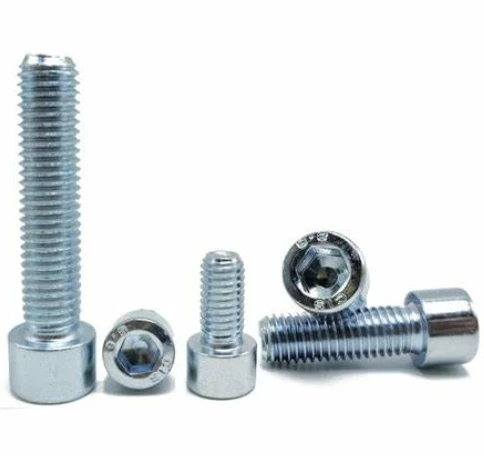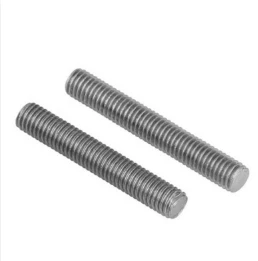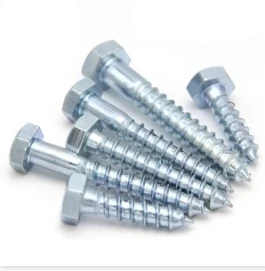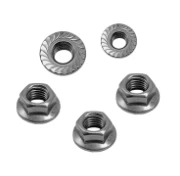The Pivotal Role of Flange Bolts in Modern Industrial Applications and Evolving Trends
In the intricate architecture of industrial systems, the integrity and reliability of every component are paramount. Among these, the Flange Bolt stands as a critical fastener, ingeniously designed with an integrated washer face that distributes load more evenly, preventing loosening and ensuring a secure connection without the need for a separate washer. This design feature is particularly vital in applications where vibration, thermal expansion, or dynamic loads are prevalent, making them indispensable across a spectrum of heavy industries. Current industry trends reveal a growing demand for high-performance, corrosion-resistant, and application-specific flange bolts. With global industrial infrastructure projects accelerating, especially in renewable energy, chemical processing, and water treatment sectors, the emphasis is shifting towards materials with superior mechanical properties and advanced surface treatments that can withstand extreme environmental conditions. Manufacturers are increasingly focusing on sustainable production methods and compliance with stringent international standards, driven by regulatory pressures and a collective industry commitment to environmental stewardship. The adoption of smart manufacturing techniques, including IoT-enabled quality control and predictive maintenance protocols, is also influencing the design and deployment of flange bolts, leading to innovations that enhance longevity and operational safety. This strategic shift ensures that these seemingly small components continue to play an outsized role in the stability and efficiency of large-scale industrial operations, directly impacting plant uptime, safety, and overall cost-effectiveness over the life cycle of assets.
The Meticulous Manufacturing Process of Flange Bolts: From Raw Material to Finished Product
The production of a high-quality Flange Bolt is a sophisticated process demanding precision engineering and stringent quality control at every stage. It typically commences with the selection of premium-grade materials, commonly high-strength steel alloys such as carbon steel (e.g., Grade 5, Grade 8, ASTM A325), stainless steel (e.g., 304, 316), or specialized alloys like Inconel for high-temperature or corrosive environments. The primary manufacturing processes include cold heading or hot forging, depending on the bolt's size and material properties. Cold heading forms the bolt head and integrated flange at room temperature, enhancing material strength through work hardening, while hot forging is used for larger diameters or harder alloys, allowing for greater formability. This is followed by thread rolling, a process that creates threads by deforming the material rather than cutting it, which significantly improves the bolt's fatigue resistance and shear strength. Heat treatment, such as quenching and tempering, is then applied to achieve the desired hardness, tensile strength, and ductility, optimizing the bolt's mechanical properties for demanding applications. Surface finishing, including zinc plating for corrosion resistance, hot-dip galvanizing for enhanced durability in harsh outdoor environments, or specialized coatings like PTFE for reduced friction and improved chemical resistance, further extends the bolt's service life and performance. Throughout this entire workflow, rigorous quality control measures are implemented, adhering to international standards such as ISO 898-1 for mechanical properties of fasteners and ANSI/ASME B18.2.1 for dimensional specifications. Non-destructive testing methods like magnetic particle inspection and ultrasonic testing are routinely performed to detect any internal flaws or surface imperfections, ensuring that each Flange Bolt meets the highest standards for structural integrity and long-term reliability in critical industrial applications.

Technical Specifications and Performance Parameters of Flange Bolts
Understanding the precise technical specifications and performance parameters of Flange Bolts is essential for engineers and procurement specialists to ensure optimal functionality and safety in diverse industrial contexts. These bolts are characterized by their integrated flange, which eliminates the need for a separate washer by distributing clamping force over a larger area, thus reducing the risk of loosening due to vibration or thermal cycling. Key parameters include material grade (e.g., Carbon Steel Grade 8.8, 10.9, Stainless Steel A2-70, A4-80), thread diameter (ranging from M5 to M24 or 1/4" to 1"), thread pitch, and nominal length. Mechanical properties, crucial for performance, encompass tensile strength (minimum specified resistance to breaking under tension, often exceeding 800 MPa for high-strength grades), yield strength (the point at which permanent deformation begins, typically 640 MPa for Grade 10.9), and hardness (Rockwell C scale, indicating resistance to indentation). Corrosion resistance is another critical factor, determined by the material composition and surface treatment; options range from standard zinc plating for mild environments to hot-dip galvanization for enhanced protection, or specialized coatings like Dacromet and Geomet for superior chemical and salt spray resistance (often tested to exceed 1000 hours in salt spray tests per ASTM B117). The design ensures that stress concentration is minimized, leading to a longer fatigue life compared to standard hex bolts with separate washers. The unique flange design also provides a greater bearing surface, which is particularly beneficial when securing softer materials or in applications where surface marring is a concern. Adherence to standards like DIN 6921, ISO 8100, or JIS B1189 ensures dimensional compatibility and interchangeability globally.
Typical Flange Bolt Specifications
| Parameter | Common Values / Ranges | Significance |
|---|---|---|
| Material Grade | Carbon Steel (8.8, 10.9, 12.9), Stainless Steel (A2-70, A4-80), Alloy Steel | Determines mechanical strength, temperature resistance, and corrosion properties. |
| Tensile Strength (min.) | 800 MPa (Grade 8.8), 1040 MPa (Grade 10.9) | Maximum stress a material can withstand while being stretched or pulled before breaking. |
| Yield Strength (min.) | 640 MPa (Grade 8.8), 940 MPa (Grade 10.9) | Stress at which a material begins to deform plastically. |
| Hardness | 22-32 HRC (Grade 8.8), 32-39 HRC (Grade 10.9) | Resistance to localized plastic deformation (e.g., indentation or scratching). |
| Surface Treatment | Zinc Plated (Cr3+), Hot Dip Galvanized, Dacromet, Geomet, Black Oxide | Enhances corrosion resistance, aesthetic appeal, and friction characteristics. |
| Salt Spray Resistance | >72 hours (Zinc), >1000 hours (Dacromet/Geomet) | Indicates resistance to corrosive environments (per ASTM B117 standard). |
Diverse Application Scenarios and Sector-Specific Advantages of Flange Bolts
The inherent design advantages of the Flange Bolt make it a preferred fastening solution across a multitude of industries where joint integrity and operational safety are non-negotiable. In the petrochemical sector, these bolts are extensively used in pipeline systems, pressure vessels, and refinery equipment, where they provide superior resistance to vibration and thermal cycling, crucial for preventing leaks of hazardous materials. Their integrated washer face ensures uniform load distribution, minimizing localized stress on flanges and significantly extending the service life of critical infrastructure. For the metallurgy industry, including steel mills and foundries, Flange Bolts are vital in securing heavy machinery components, conveyor systems, and structural frameworks, where their robust design handles high static and dynamic loads effectively, contributing to enhanced operational efficiency and reduced maintenance downtime. In water supply and drainage systems, as well as municipal infrastructure projects, the anti-corrosion properties provided by treatments like hot-dip galvanizing or specialized coatings make them ideal for submerged or constantly moist environments, preventing premature degradation and ensuring long-term structural stability. Beyond these, Flange Bolts find widespread use in the automotive industry for securing chassis and engine components, in marine applications for shipbuilding and offshore platforms due to their resistance to saltwater corrosion, and in the power generation sector for turbines and generator assemblies where reliability under extreme temperature fluctuations is paramount. Their ability to improve joint efficiency translates directly into advantages such as energy saving, by maintaining tight seals in fluid handling systems which reduces energy losses from leaks, and substantial anti-corrosion benefits that slash maintenance costs and extend the lifespan of costly equipment. The integrated design reduces assembly time and the risk of incorrect washer placement, streamlining installation and contributing to overall project efficiency and safety.
Strategic Manufacturer Comparison and Customization Solutions for Flange Bolts
Selecting the right manufacturer for Flange Bolts is a strategic decision that directly impacts project quality, reliability, and cost-effectiveness. Key factors to consider include the manufacturer's adherence to international quality standards (e.g., ISO 9001, ASTM, DIN), their range of material grades and surface finishes, production capabilities, and proven track record in specific industry applications. Reputable manufacturers often invest heavily in R&D, offering innovative solutions and robust testing facilities. When comparing suppliers, it is beneficial to look beyond mere pricing and evaluate the total cost of ownership, which includes product longevity, performance consistency, and after-sales support. For instance, a comparison might highlight differences in lead times, minimum order quantities (MOQs), and the extent of technical support offered. Beyond standard offerings, the capacity for customization is a significant differentiator. Many industrial applications demand highly specialized Flange Bolts that deviate from standard specifications, whether in terms of unique dimensions, specific material alloys for extreme temperatures or corrosive media, or bespoke surface treatments for enhanced wear resistance or electrical insulation. A manufacturer with strong engineering capabilities can provide tailored solutions, collaborating with clients from design inception to final production. This includes developing custom tooling for non-standard head styles or thread configurations, performing advanced material testing to ensure compatibility with unique operational environments, and offering specialized packaging for ease of installation in complex assemblies. This ability to deliver custom Flange Bolts precisely engineered to fit niche requirements ensures optimal performance, extends asset life, and often reduces overall project risk, cementing the manufacturer's position as a reliable partner in critical industrial supply chains. It's imperative to verify their certifications, service history, and client testimonials to ensure trustworthiness and alignment with your project's exacting standards.
Manufacturer Comparison: Standard Flange Bolt Offerings
| Feature | Manufacturer A | Manufacturer B | HBTBLS (Example) |
|---|---|---|---|
| Certifications | ISO 9001 | ISO 9001, CE | ISO 9001, ASTM, DIN, IATF 16949 |
| Material Grades Offered | 8.8, 10.9 (Carbon Steel) | 8.8, 10.9, 12.9, A2-70 | 8.8, 10.9, 12.9, A2-70, A4-80, Duplex, Inconel |
| Standard Surface Finishes | ZP, HDG | ZP, HDG, PTFE | ZP, HDG, Dacromet, Geomet, PTFE, Black Oxide |
| Customization Capability | Limited (Dimensions only) | Moderate (Dimensions, some materials) | Extensive (Dimensions, Materials, Finishes, Prototypes, Engineering Support) |
| Typical Lead Time (Standard) | 4-6 Weeks | 3-5 Weeks | 2-4 Weeks (Rush options available) |

Real-World Applications and Success Stories with Flange Bolts
The efficacy and reliability of Flange Bolts are best demonstrated through their successful deployment in real-world industrial projects, showcasing their ability to withstand challenging operational conditions and deliver long-term performance. One notable case involved a major municipal water treatment plant in the Asia-Pacific region that was experiencing persistent leakage issues in its large-diameter PVC pipeline sections due to conventional fasteners loosening under continuous vibration from pump operations. By retrofitting with high-grade stainless steel Flange Bolts featuring a specialized anti-vibration coating, the plant was able to eliminate leaks entirely, reducing water loss by an estimated 15% annually and significantly lowering maintenance frequency. This translated into substantial operational savings and improved environmental compliance. Another compelling example comes from the offshore oil and gas industry, where a leading exploration company sought enhanced corrosion protection for their subsea manifold connections. Standard fasteners were failing prematurely in the highly saline and high-pressure deep-sea environment. The adoption of custom-engineered Duplex stainless steel Flange Bolts with PTFE coatings extended the service life of these critical connections from 2 years to over 8 years, drastically reducing the need for costly and hazardous underwater repairs. Furthermore, in the renewable energy sector, specifically large-scale wind turbine installations, the structural integrity of the tower sections is paramount. Here, high-strength carbon steel Flange Bolts (Grade 10.9 and 12.9) with Dacromet coating are routinely specified to secure the tower segments, providing exceptional fatigue resistance against constant wind-induced stresses and superior corrosion protection in exposed environments. These applications underscore the Flange Bolt's intrinsic value in enhancing operational safety, extending equipment lifespan, and ultimately contributing to the economic viability of large-scale industrial projects across diverse and demanding sectors.
Ensuring Trust: FAQ, Delivery, and Warranty Commitments for Flange Bolts
Building trust in the B2B landscape relies on transparency, reliability, and robust support systems, especially for critical components like Flange Bolts. Customers often have specific queries regarding product selection, procurement, and post-purchase support. A comprehensive FAQ section can address common concerns, such as "What materials are best for high-temperature applications?" (e.g., typically alloy steels like B7 or specialized nickel alloys), or "How do I choose the correct thread pitch for my application?" (usually determined by the mating component, following ISO or UNC/UNF standards). Understanding delivery cycles is vital for project planning; standard orders for common Flange Bolt configurations can typically be fulfilled within 2-4 weeks, while custom or high-volume orders may require 6-10 weeks, depending on material availability and manufacturing complexity. Expedited shipping options are often available for urgent requirements, reflecting a commitment to flexible client support. Furthermore, robust quality assurance and warranty policies are cornerstones of trustworthiness. Leading manufacturers typically offer a warranty period of 1 to 5 years against manufacturing defects, contingent on proper installation and use according to industry standards. This commitment is often backed by comprehensive batch traceability, allowing for full material and process verification if any issues arise. Customer support extends beyond sales, including technical consultation for application challenges, post-installation guidance, and efficient handling of any warranty claims. This holistic approach to customer engagement and support is essential for forging long-term partnerships and instilling confidence in the quality and performance of every supplied Flange Bolt, ensuring seamless project execution and operational reliability.
Frequently Asked Questions (FAQ)
-
Q: What makes a Flange Bolt superior to a standard hex bolt and washer assembly?
A: A Flange Bolt features an integrated flange that acts as a large bearing surface, distributing clamping load more evenly over a wider area. This reduces stress concentration on the fastened material, minimizes the risk of loosening due to vibration, and eliminates the need for a separate washer, simplifying assembly and reducing part count. This integrated design enhances joint integrity and fatigue resistance.
-
Q: How do you ensure the corrosion resistance of your Flange Bolts?
A: We offer various surface treatments tailored to specific environmental conditions. Options include electro-galvanized zinc plating (for moderate protection), hot-dip galvanizing (for enhanced outdoor/industrial exposure), Dacromet and Geomet coatings (for superior salt spray resistance, often exceeding 1000 hours), and specialized PTFE coatings for chemical resistance. Material selection, such as stainless steel grades (304, 316) or superalloys (Duplex, Inconel), also plays a crucial role.
-
Q: What is the typical lead time for custom Flange Bolt orders?
A: Lead times for custom Flange Bolt orders vary depending on complexity, material availability, and order volume. Generally, they range from 6 to 10 weeks from confirmed design to delivery. We provide a detailed production schedule upon order confirmation and strive to meet critical deadlines with efficient manufacturing processes and supply chain management.
-
Q: What quality certifications do your Flange Bolts adhere to?
A: Our manufacturing processes for Flange Bolts are rigorously controlled and certified to international standards, including ISO 9001 for quality management systems. Our products comply with relevant industry-specific standards such as ASTM (e.g., ASTM A325, A490 for structural bolts), DIN, ANSI, and JIS, ensuring product performance, dimensional accuracy, and material integrity. Batch test reports and material certificates are available upon request.
Conclusion
The Flange Bolt, with its unique integrated design, represents a pinnacle of fastening technology, offering unparalleled stability, load distribution, and resistance to loosening in demanding industrial environments. Its pervasive application across sectors from petrochemicals and metallurgy to water treatment and renewable energy underscores its critical role in ensuring the integrity and longevity of complex systems. As industries continue to evolve, driven by demands for higher performance, enhanced safety, and greater environmental stewardship, the continuous innovation in materials science, manufacturing processes, and surface treatments for Flange Bolts will remain crucial. The strategic selection of a reputable manufacturer, characterized by adherence to stringent quality standards, extensive customization capabilities, and unwavering customer support, is paramount to harnessing the full potential of these indispensable fasteners. By focusing on certified products, understanding comprehensive technical specifications, and leveraging expert consultation, businesses can ensure optimal operational efficiency, minimize maintenance costs, and significantly extend the service life of their critical assets, ultimately contributing to a more reliable and sustainable industrial future.
References
- "Fastener Technology International." Peer-reviewed journal covering advancements in fastener manufacturing and applications.
- "Handbook of Bolts and Bolted Joints" by John H. Bickford and Sayed M. Nassar. Marcel Dekker, Inc. Provides detailed engineering principles and application data for various bolted joints.
- "Corrosion and Protection of Fasteners" – NACE International publications on material selection and surface treatments for corrosion prevention in industrial environments.
- "ISO 898-1: Mechanical properties of fasteners made of carbon steel and alloy steel." International standard outlining strength grades and testing methods.
- "ASM Handbook, Volume 15: Casting." Covers various casting processes, including those used in initial material formation for fasteners.
Post time: жнів . 18, 2025 06:00


